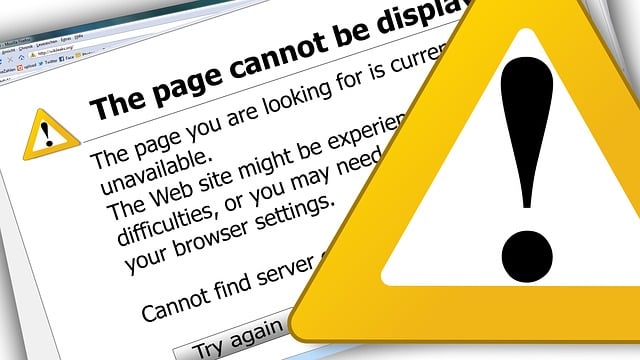In Oregon defense cases, success requires understanding and avoiding common mistakes. These include inadequate investigation, overlooking evidence, misinterpreting laws, and failing to adhere to specific Oregon criminal codes. A comprehensive guide helps lawyers navigate complexities, enhance defenses, and ensure justice by providing best practices, clear communication, thorough investigations, accurate law interpretation, and meticulous documentation. Adhering to these principles minimizes defense errors, strengthens case presentation, and increases the likelihood of favorable outcomes in Oregon defense cases.
In the complex world of Oregon defense cases, understanding and avoiding common mistakes is crucial for a successful outcome. This comprehensive guide delves into the typical errors that can derail even the strongest legal defenses. From poor communication with clients to inadequate investigation and evidence gathering, we explore critical areas where legal professionals often stumble. By mastering effective documentation, record-keeping, and strategic case arguments, attorneys in Oregon can navigate these pitfalls and deliver robust defenses.
- Understanding Common Mistakes in Oregon Defense Cases
- Poor Communication and Client Expectations
- Inadequate Investigation and Evidence Gathering
- Legal Arguments and Case Strategy
- Effective Documentation and Record-Keeping Practices
Understanding Common Mistakes in Oregon Defense Cases

In Oregon defense cases, understanding common mistakes is crucial for ensuring a robust and successful outcome. Many legal professionals and clients fall into pitfalls that can weaken or even undermine their case. Familiarizing oneself with these errors is the first step towards avoiding them. Common defense mistakes in Oregon range from inadequate investigation and preparation to overlooking crucial evidence and misinterpreting laws. For instance, failing to thoroughly examine witness statements, missing deadlines for disclosures, or misstating facts can significantly impact the case’s credibility.
Additionally, not recognizing the specific legal requirements of Oregon’s criminal codes and procedural rules can lead to serious errors. Misstepping in areas such as suppression motions, challenges to evidence, and constitutional rights can result in adverse rulings. A comprehensive guide for Oregon defense cases is essential for navigating these complexities successfully. By staying informed about common pitfalls and adhering to best practices, legal teams can enhance their chances of delivering effective defenses, ultimately ensuring justice is served.
Poor Communication and Client Expectations

In Oregon defense cases, one of the most significant challenges attorneys face is navigating the complex relationship between communication and client expectations. Often, poor communication leads to common defense errors, as clients may not fully grasp their legal options or the potential outcomes of their case. This misalignment can result in unmet expectations, causing unnecessary stress and dissatisfaction. To avoid these pitfalls, Oregon defense lawyers must establish clear and consistent communication channels from the initial consultation through trial. Regular updates, simple language, and proactive explanation of legal strategies are key to ensuring clients understand their rights and roles in the process.
Furthermore, managing client expectations is a critical component of successful Oregon defense. Clients often bring high hopes and anxieties into the legal system, which can be challenging to manage. Lawyers should discuss realistic expectations early on, setting clear milestones and outlining potential scenarios. By being transparent about the case’s strengths and weaknesses, attorneys demonstrate professionalism and foster trust. This proactive approach helps prevent later misunderstandings and strengthens the attorney-client relationship, ultimately enhancing the chances of a favorable outcome in defense cases.
Inadequate Investigation and Evidence Gathering

Inadequate investigation and evidence gathering are among the most common defense mistakes in Oregon cases. Lawyers often rush to file a case without thoroughly examining the facts, which can lead to crucial evidence being overlooked or ignored. This is particularly problematic in complex legal matters where a thorough understanding of the evidence is essential for building a strong defense. A comprehensive investigation should include reviewing all available records, interviewing witnesses, and gathering physical evidence that supports or contradicts the client’s version of events.
Oregon defense attorneys must also be mindful of the chain of custody for any physical evidence. Improper handling or storage can lead to its inadmissibility in court, severely weakening the defense strategy. Additionally, failure to preserve relevant digital evidence, such as text messages, emails, and social media posts, can be a significant pitfall. Lawyers should ensure that they have the proper tools and expertise to handle electronic data, preserving it for analysis and use during trials. An Oregon defense guide should emphasize these aspects to help lawyers avoid mistakes and ensure their clients receive the best possible representation.
Legal Arguments and Case Strategy

In Oregon defense cases, effective legal arguments and a well-strategized case approach are paramount to success. One of the common pitfalls is misinterpreting the law, leading to weak or misguided arguments. Lawyers must thoroughly understand the applicable laws and regulations specific to Oregon to avoid such mistakes. A robust case strategy begins with meticulous research, identifying all relevant facts, and crafting a compelling narrative that aligns with the law. This process involves dissecting the prosecution’s case, anticipating their arguments, and building a solid defense around any weaknesses or inconsistencies they may present.
To prevent defense errors in Oregon, legal teams should prioritize clear communication among themselves and with the client. Miscommunication can result in oversights or misunderstandings that compromise the case. A comprehensive understanding of the client’s version of events and the potential legal implications is crucial. Additionally, staying updated on recent legal precedents and amendments to Oregon’s legal code ensures the defense strategy remains current and relevant, thereby enhancing the chances of a favorable outcome.
Effective Documentation and Record-Keeping Practices

In the pursuit of a robust Oregon defense strategy, one cannot overlook the importance of meticulous documentation and record-keeping practices. This aspect is crucial in navigating the intricate legal landscape of Oregon and avoiding common pitfalls that often plague defense cases. Effective record-keeping ensures that every detail related to the case is documented accurately, providing a clear and comprehensive overview for lawyers and judges alike. It involves not just gathering evidence but also organizing it in a structured manner, making it easily accessible during court proceedings.
A well-maintained defense guide should include detailed notes on client interactions, witness statements, expert opinions, and any relevant legal precedents. This meticulous approach allows for strategic planning, enables lawyers to formulate robust arguments, and helps in identifying potential weaknesses or errors early on. By adopting these practices, legal professionals in Oregon can significantly reduce defense mistakes, ensuring a more solid case presentation and ultimately improving the chances of favorable outcomes.














